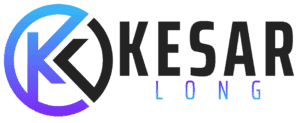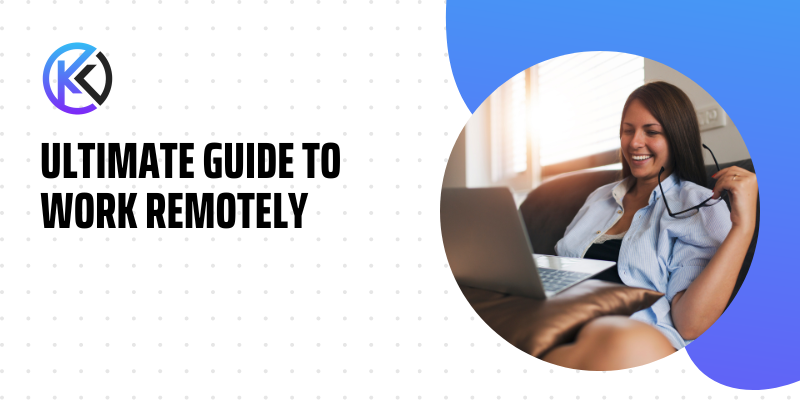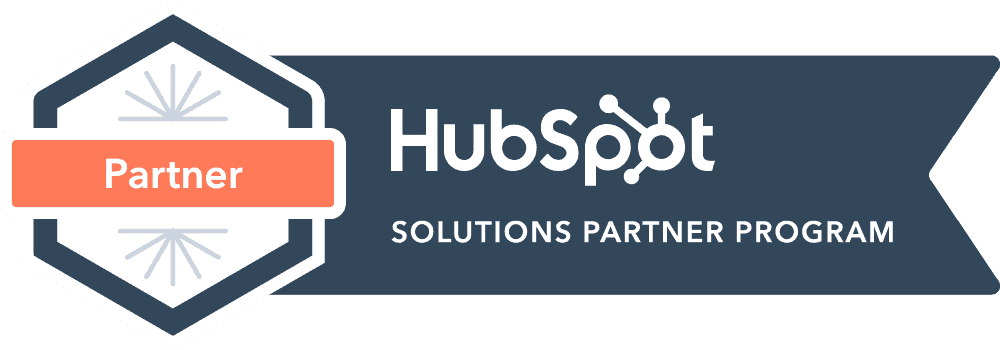Ultimate Guide to Work Remotely

Introduction
Working remotely has become increasingly popular in recent years, and digital marketing is one field that lends itself well to this flexible work arrangement. Whether you’re a seasoned digital marketer or just starting out in the industry, the ability to work remotely offers numerous benefits and opportunities. In this ultimate guide, we will explore the strategies, tools, and best practices for working remotely in digital marketing.
Working remotely in digital marketing allows you to break free from the constraints of a traditional office and create your own work environment. You can set your own schedule, work from anywhere in the world, and have more control over your work-life balance. This flexibility not only improves your job satisfaction but also allows you to focus on your digital marketing strategy without the distractions and limitations of a traditional office setting.
Remote work in digital marketing also opens up new opportunities for productivity and efficiency. By leveraging the right tools and strategies, you can streamline your workflow, collaborate with team members and clients, and stay organized. With the right approach, you can achieve your marketing goals and deliver high-quality work, all from the comfort of your own home or wherever you choose to work.
Building a strong online presence is essential for freelance digital marketers. With the rise of digital platforms and social media, having a personal brand and a professional online presence can make a significant difference in attracting potential clients and showcasing your skills. We will explore the best practices for building a strong online presence and leveraging social media marketing to grow your freelance digital marketing business.
In addition to the benefits of flexibility and productivity, working remotely in digital marketing offers a world of opportunities for career growth and continuous learning. You can hone your skills, stay updated with industry trends, and expand your network by connecting with peers online. Whether you’re a seasoned professional or just starting your freelance career, remote work in digital marketing can open doors to new clients, projects, and collaborations.
Top Strategies to Work Remotely in Digital Marketing
Working remotely in digital marketing requires a unique set of strategies to ensure success. Here are five key strategies to help you thrive in a remote work environment:
1. Setting Up Your Home Office for Maximum Productivity
One of the first steps to working remotely in digital marketing is setting up a dedicated home office. Creating a designated workspace helps you separate your work life from your personal life and promotes productivity. Choose a quiet area in your home where you can focus and minimize distractions. Invest in a comfortable desk and chair, proper lighting, and essential office equipment like a laptop, printer, and high-speed internet connection. Personalize your space with inspiring decor and organize your work materials to enhance efficiency. By creating a productive home office, you’ll be able to work efficiently and effectively in your digital marketing role.
2. Managing Time Zones for Global Team Collaboration
When working remotely in digital marketing, it’s common to collaborate with global teams and clients. However, different time zones can present challenges for effective communication and collaboration. To overcome this, it’s crucial to manage time zones effectively. Utilize digital tools like time zone converters and scheduling software to coordinate meetings and deadlines across different time zones. Be mindful of your team members’ availability and establish clear communication guidelines to ensure everyone is on the same page. Flexibility and adaptability are key when working with global teams, so be prepared to adjust your schedule and find common meeting times. By effectively managing time zones, you can maintain seamless collaboration and productivity in your remote work environment.
3. Essential Tools for Remote Digital Marketers
Working remotely in digital marketing requires the use of various tools to stay organized, collaborate with team members, and deliver high-quality work. Here are some essential tools for remote digital marketers:
- Project management tools: Tools like Trello, Asana, or Monday.com help you stay organized, manage tasks, and collaborate with team members.
- Communication tools: Platforms like Slack or Microsoft Teams allow for seamless communication and collaboration with remote team members.
- Video conferencing tools: Tools like Zoom or Google Meet enable face-to-face communication and virtual meetings with clients and team members.
- Analytics tools: Tools like Google Analytics or SEMrush help you track and analyze the performance of your digital marketing campaigns.
- Content management systems: Platforms like WordPress or HubSpot CMS make it easy to create, edit, and publish content for websites and blogs.
4. Building a Strong Online Presence
As a freelance digital marketer, building a strong online presence is crucial for attracting potential clients and showcasing your expertise. Here are some key strategies for building a strong online presence:
- Create a professional website: Build a website that highlights your skills, services, and portfolio. Optimize it for search engines and make it visually appealing and easy to navigate.
- Develop a personal brand: Define your unique value proposition and showcase it through your website, social media profiles, and content. Position yourself as an expert in your niche and consistently deliver high-quality work.
- Leverage social media marketing: Establish a presence on relevant social media platforms like LinkedIn, Twitter, or Instagram. Share valuable content, engage with your audience, and build relationships with potential clients and industry peers.
- Network and collaborate: Participate in online communities, join industry-specific groups, and attend virtual networking events. Collaborate with other professionals on projects or guest posting opportunities to expand your reach and visibility.
- Create valuable content: Develop a content strategy that aligns with your target audience’s needs and interests. Publish blog posts, videos, or podcasts that demonstrate your expertise and provide value to your audience.
5. Networking and Connecting with Peers Online
Networking and connecting with peers is essential for professional growth as a remote digital marketer. While working remotely, it’s important to actively seek out opportunities to network and build relationships with industry peers. Here are some strategies for networking and connecting with peers online:
- Engage in online communities: Join industry-specific forums, Facebook groups, and LinkedIn groups. Participate in discussions, ask questions, and share your insights to establish yourself as an active and valuable member.
- Attend virtual events: Look for online conferences, webinars, or workshops in your industry. Participate in these virtual events, ask questions, and connect with other attendees to expand your network.
- Collaborate on projects: Seek opportunities to collaborate with other digital marketers on projects or joint ventures. Collaborations can help you learn from others, gain exposure to new audiences, and build valuable relationships.
- Utilize social media: Leverage social media platforms like LinkedIn, Twitter, or Instagram to connect with industry peers. Engage with their content, share valuable insights, and build meaningful connections.
Key Benefits of Remote Work in Digital Marketing
Working remotely in digital marketing offers a wide range of benefits that can enhance your career and lifestyle. Here are some key benefits of remote work in digital marketing:
1. Flexibility to Choose Your Work Environment
One of the greatest benefits of remote work in digital marketing is the flexibility it offers in choosing your work environment. Rather than being confined to a traditional office setting, you have the freedom to work from anywhere that inspires you. Whether it’s a cozy home office, a vibrant coffee shop, or a tropical beach, you have the flexibility to create a work environment that suits your preferences and promotes creativity and productivity. This flexibility allows you to find a work-life balance that best fits your needs and enables you to design your ideal work environment.
2. Access to a Global Talent Pool
Working remotely in digital marketing opens up access to a global talent pool. As a freelance digital marketer, you have the opportunity to collaborate with clients and team members from all over the world. This exposure to diverse perspectives and expertise can enhance the quality of your work and broaden your professional network. Additionally, by offering your digital marketing services remotely, you can attract clients from different countries and industries, expanding the potential for your freelance business. This access to a global talent pool allows you to work on a variety of projects and gain valuable experience in different markets and cultures.
3. Increased Work-Life Balance
Achieving a healthy work-life balance is often a top priority for remote digital marketers. Working remotely provides the opportunity to create a schedule that fits your lifestyle and personal commitments. You have more flexibility to prioritize personal activities, spend time with loved ones, and pursue hobbies and interests outside of work. This increased work-life balance can lead to higher job satisfaction, improved mental well-being, and a better overall quality of life. By effectively managing your time and setting boundaries between work and personal life, remote work in digital marketing can help you achieve the work-life balance you desire.
4. Reduction in Commuting Time and Costs
One of the most significant benefits of remote work in digital marketing is the reduction in commuting time and costs. By eliminating the need to commute to a traditional office, you save valuable time that can be better spent on work or personal activities. This reduction in commuting time also translates to cost savings, as you no longer need to spend money on transportation expenses or deal with the stress of rush hour traffic. Remote work allows you to reclaim this time and use it more productively, resulting in increased job satisfaction and a better work-life balance.
Challenges of Remote Work and How to Overcome Them
While remote work in digital marketing offers numerous benefits, it also comes with its own set of challenges. Here are some common challenges of remote work and strategies to overcome them:
1. Overcoming Isolation and Staying Connected
Working remotely can sometimes lead to feelings of isolation and disconnection from colleagues. To overcome this challenge, it’s important to proactively stay connected with your team and build relationships. Utilize communication tools like Slack or Microsoft Teams to stay in touch with colleagues and engage in virtual water cooler conversations. Participate in online communities and industry-specific groups to connect with like-minded professionals. Additionally, social media platforms can be a valuable resource for networking and staying connected with peers in the industry. By actively seeking out opportunities for connection and collaboration, you can overcome feelings of isolation and maintain a sense of community while working remotely.
2. Maintaining Work Discipline and Motivation
Maintaining work discipline and staying motivated can be a challenge when working remotely. Without the structure and accountability of a traditional office environment, it’s important to establish a routine and set clear goals for yourself. Create a dedicated workspace, set specific work hours, and establish daily or weekly goals to stay focused and motivated. Break down tasks into manageable chunks and reward yourself for completing them. Additionally, finding support and accountability through online communities or virtual coworking spaces can help you stay on track and maintain a sense of motivation in your freelance career.
3. Handling Distractions at Home
Working remotely from home can present distractions that can hinder productivity. To overcome this challenge, it’s important to create a dedicated home office space that minimizes distractions. Set boundaries with family members or roommates to ensure uninterrupted work time. Use productivity techniques like the Pomodoro Technique to stay focused and manage your time effectively. Minimize external distractions by turning off notifications on your phone or using website blockers to limit access to distracting websites. By implementing strategies to minimize distractions, you can create a productive work environment at home and maintain high levels of productivity.
4. Ensuring Data Security and Privacy
Working remotely requires special attention to data security and privacy. To ensure the safety of sensitive information, it’s important to take necessary precautions such as using secure internet connections and password-protecting your devices. Invest in virtual private networks (VPNs) to encrypt your internet connection and protect your data from potential threats. Be mindful of the security of your virtual meetings and use platforms with strong encryption and privacy features. Additionally, adhere to data protection regulations and client confidentiality agreements to maintain trust and professionalism in your work. By prioritizing data security and privacy, you can work remotely with confidence and protect your clients’ valuable information.
Best Practices for Freelancers in Digital Marketing
As a freelance digital marketer, there are certain best practices that can help you succeed in your career. Here are four key best practices for freelancers in digital marketing:
1. Crafting an Effective Portfolio
Your portfolio is a powerful tool for showcasing your skills and attracting potential clients. It’s essential to craft an effective portfolio that highlights your best work and demonstrates your expertise. Include a variety of projects that showcase your range of skills and industry knowledge. Use case studies to provide context and highlight the results you achieved for clients. Ensure your portfolio is visually appealing, easy to navigate, and optimized for search engines. Regularly update your portfolio with new projects and testimonials to keep it relevant and engaging. By crafting an effective portfolio, you can establish yourself as a professional freelance digital marketer and attract high-quality clients.
2. Setting Clear Communication Guidelines with Clients
Clear and effective communication is essential for success as a freelance digital marketer. Establish clear communication guidelines with your clients from the start to ensure expectations are aligned. Set clear project timelines, deliverables, and communication channels. Regularly update clients on the progress of their projects and provide opportunities for feedback. Use project management tools or email updates to keep clients informed and engaged. Be responsive and professional in your communication to maintain trust and build strong client relationships. By setting clear communication guidelines, you can enhance client satisfaction and ensure a smooth workflow in your freelance business.
3. Pricing Your Services Competitively
Pricing your services competitively is an important aspect of running a successful freelance digital marketing business. Research industry standards and competitor rates to ensure your pricing is aligned with market expectations. Consider your level of experience, expertise, and the value you provide to clients when determining your rates. Be transparent with clients about your pricing structure and any additional fees or charges. Clearly communicate the scope of your services and the deliverables included in your pricing. Regularly review and adjust your pricing based on market trends and changes in your skills and experience. By pricing your services competitively, you can attract clients and generate a sustainable income as a freelance digital marketer.
4. Staying Updated with Industry Trends
The digital marketing industry is constantly evolving, and staying updated with industry trends is essential for remaining competitive as a freelance digital marketer. Follow industry blogs, subscribe to newsletters, and join professional associations to stay informed about the latest trends and best practices. Take advantage of online courses, webinars, and conferences to enhance your skills and knowledge. Engage in continuous learning to stay ahead of the curve and offer cutting-edge solutions to your clients. Networking with industry peers and participating in online communities can also provide valuable insights and keep you updated with the latest industry trends. By staying updated with industry trends, you can position yourself as a knowledgeable and trusted digital marketing professional.
Transitioning from Office to Remote Work
Transitioning from working in a traditional office to remote work can be a significant change. Here are four key steps to help you navigate this transition:
1. Preparing for the Shift Mentally and Physically
Preparing for the shift from office to remote work involves both mental and physical preparation. Mentally, it’s important to set clear expectations and goals for yourself in the remote work environment. Embrace the flexibility and freedom that remote work offers, but also establish a routine and maintain discipline. Physically, set up a dedicated workspace in your home that is comfortable and conducive to productivity. Invest in the necessary equipment, such as a reliable internet connection and ergonomic furniture. By mentally and physically preparing for the shift, you can ensure a smooth transition to remote work.
2. Establishing a Routine for Remote Work
Establishing a routine is crucial for maintaining productivity and focus while working remotely. Create a schedule that aligns with your most productive times and personal commitments. Set specific work hours and designate breaks for rest and relaxation. Prioritize important tasks and create a to-do list to stay organized. Minimize distractions by setting boundaries with family members or roommates and turning off notifications on your phone. By establishing a routine, you can create structure and stability in your remote work environment and enhance your overall productivity.
3. Leveraging Technology for Smooth Transition
Technology plays a vital role in facilitating a smooth transition to remote work. Utilize collaborative tools like project management software, communication platforms, and video conferencing tools to stay connected with colleagues and clients. Familiarize yourself with the functionalities and features of these tools to maximize their effectiveness. Invest in reliable hardware and software, such as a fast internet connection and productivity software. Educate yourself on cybersecurity best practices to protect sensitive information while working remotely. By leveraging technology, you can seamlessly transition to remote work and maintain effective communication and collaboration.
4. Setting Boundaries with Household Members
Working remotely from home can blur the lines between work and personal life, making it essential to set boundaries with household members. Communicate your working hours and expectations with family members or roommates to minimize interruptions during work time. Establish physical boundaries by using a separate workspace or dedicated office area. Encourage open communication and understanding within your household regarding your work obligations and commitments. By setting clear boundaries, you can maintain a healthy work-life balance and create a harmonious home environment conducive to remote work.
Conclusion
Embracing remote work in digital marketing offers flexibility, global collaboration, and enhanced work-life balance. Overcoming challenges like isolation and distractions is key to maximizing productivity. By setting up a conducive home office, staying connected, and maintaining discipline, you can thrive in this dynamic work environment. Leverage essential tools, network online, and stay updated with industry trends to excel as a freelancer. Transitioning smoothly from office to remote work requires mental preparation, routine establishment, and technology utilization. Remote work is not just a trend; it’s a lifestyle that empowers you to harness your potential in the digital realm.
Frequently Asked Questions
What Are the Best Tools for Remote Work?
The best tools for remote work in digital marketing include project management tools like Trello or Asana, communication platforms like Slack or Microsoft Teams, and video conferencing tools like Zoom or Google Meet. These tools facilitate efficient collaboration and communication with team members and clients.
How Do You Stay Productive While Working Remotely?
To stay productive while working remotely, establish a routine, set specific goals, and prioritize tasks. Minimize distractions, create a dedicated workspace, and manage your time effectively. Maintain discipline and focus on your work responsibilities to maximize productivity.
Can Remote Work Be as Effective as Working from an Office?
Yes, remote work can be as effective as working from an office when the right strategies and tools are utilized. With proper communication, collaboration, and self-discipline, remote digital marketers can achieve high levels of productivity and effectiveness in their work.
How to Find Remote Digital Marketing Jobs?
To find remote digital marketing jobs, utilize online job boards, freelance platforms, and social media networking. Build a strong online presence, showcase your skills through your portfolio and social media profiles, and network with industry professionals to discover remote job opportunities.





